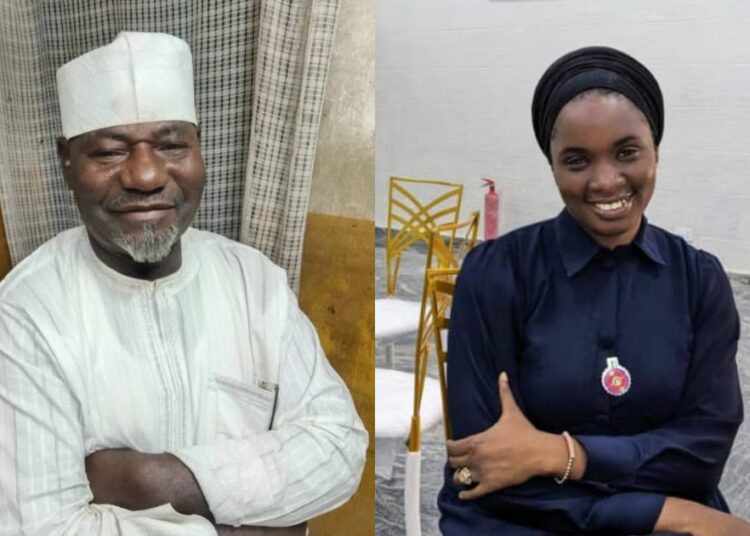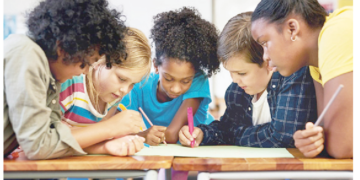Violence against women and girls remains a pressing issue in Nigeria, with troubling statistics from the National Bureau of Statistics (NBS) revealing that over 30% of Nigerian women aged 15 to 49 have experienced physical violence, and nearly 10% have faced sexual violence.
In Kogi State, these statistics are not just numbers; they represent lives disrupted, futures curtailed, and communities destabilized.
Gender-Based Violence (GBV) refers to harmful acts directed at individuals based on their gender. This includes physical, sexual, emotional, and economic abuse, disproportionately affecting women and girls. GBV stems from deeply entrenched societal norms, unequal power dynamics, and systemic inequalities that perpetuate violence.
Kogi State, located in the North-Central region of Nigeria, has a population of over 4 million people. The state is divided into 21 Local Government Areas (LGAs), including Adavi, Ajaokuta, Ankpa, Bassa, Dekina, Ibaji, Idah, Igalamela-Odolu, Ijumu, Kabba/Bunu, Kogi (Koton Karfe), Lokoja, Mopa-Muro, Ofu, Ogori/Magongo, Okehi, Okene, Olamaboro, Omala, Yagba East, and Yagba West. These LGAs serve as the administrative units where the state’s challenges and efforts to combat GBV unfold.
In Kogi State, GBV takes many forms, including domestic violence, sexual assault, forced marriage, and psychological abuse. A study conducted by the Federal University Wukari Journal of Sociology and Social Work revealed that 92.8% of respondents in the state had experienced some form of domestic violence. This staggering figure underscores the urgent need for intervention.
At the time of writing this article, only two cases of GBV were officially documented in Kogi State. One involved rape, with the accused currently in police custody and the case proceeding in court. The second case concerned domestic violence, highlighting the ongoing prevalence of abuse within homes. These cases, while a step forward in bringing GBV incidents to light, reflect the challenges of underreporting and inadequate support systems for victims.
Efforts to address GBV in Kogi State have been made, notably the enactment of the Violence Against Persons (Prohibition) Act (VAPP) in 2022. The law provides stiffer penalties for GBV offenses and aims to protect survivors. However, data showed that implementation has been slow and largely ineffective.
Reports indicate that many citizens are unaware of the law and their rights under it. According to the Womanity Index (2023), only 50.83% of respondents in Kogi State knew of the existence of laws and policies addressing GBV.
Beyond the government’s role, several Non-Governmental Organisation (NGOs) are working tirelessly to combat GBV in the state. One such organisations is the Nigerian Women Trust Fund (NWTF), which focuses on empowering women through advocacy and increasing their participation in decision-making processes. Their programmes aim to end violence against women by addressing its root causes.
Another notable player is the Women Advocates Research and Documentation Centre (WARDC). Since its establishment in 2000, WARDC has been at the forefront of combating human rights abuses against women, offering legal support, driving policy reform, and advocating for the rights of survivors.
Organisations like the Devatop Centre for Africa Development have also introduced innovative approaches to fighting GBV. Their “TALKAM” project uses technology to report and monitor GBV cases, ensuring incidents are documented and followed up effectively.
Locally, the Association for Orphan and Vulnerable Children NGOs in Nigeria (AONN) has been instrumental in engaging communities and supporting survivors. Their grassroots interventions provide a bridge between affected individuals and formal systems of justice.
These organisations often partner with the Kogi State Government, which, through the office of the First Lady, has pledged to intensify campaigns against GBV.
Collaboration between these NGOs and government agencies create a broader framework to address violence comprehensively.
To understand how perpetrators are held accountable, I reached out to Ni’ma Rabiu, a legal expert specialised in GBV cases in Kogi State. She explained that judicial measures, such as prosecuting perpetrators, remain the primary approach. However, Alternative Dispute Resolution (ADR) is also adopted in some instances. These methods focus on resolving conflicts without lengthy court processes, though ADR may not always ensure justice for survivors of GBV.
“Prosecuting the perpetrators is key,” she said, “but ADR is also used in certain cases, depending on the nature of the dispute.”
I also spoke to Imam Yahaya, a religious leader in Kogi State, to gain insights into the role of religious institutions in addressing GBV. Sheikh Abdulraheem Yahaya Muhammad emphasized the importance of parenting in instilling empathy and love in children, urging parents to “lead by example” to prevent violence.
When asked whether his religious institution has been involved in initiatives to prevent or respond to GBV cases in Kogi State, Sheikh Abdulraheem shared that awareness campaigns form part of their routine, particularly during Friday ‘Jummah’ prayers.
“There is always a sermon on kindness to all humans, especially women,” he explained. He also described his approach to handling reported cases of GBV: “When cases like this are brought to me, the first step I take is ensuring the victim receives all essential medical help by taking them to the hospital. Then, the accused is handed over to the police. However, in some cases, families insist on keeping the issue private. In such situations, I provide counseling to the victim.”
The slow progress in addressing GBV is deeply tied to cultural and systemic factors. In many parts of Kogi State, patriarchal norms dictate that women remain subordinate to men, often justifying violence as a means of control. These beliefs are compounded by economic dependency, where women lack the financial means to leave abusive relationships or seek justice. Survivors often face a “culture of silence,” where reporting violence is discouraged due to fear of stigma or retaliation.
As one Ministry of Justice official shared, “We have the VAPP law, but most citizens don’t even know it exists, and this hinders its effectiveness.” This lack of awareness, coupled with limited infrastructure like shelters or referral centers, means survivors are left with few viable options for safety or justice.
Improving education is critical to breaking this cycle of violence. A woman with knowledge is an empowered woman. Educating women and girls about their rights equips them with the tools to stand against violence and make informed decisions. Public awareness campaigns targeting both urban and rural communities are essential. These campaigns should use diverse communication channels, such as radio and town hall meetings, to reach marginalized populations.
Community engagement is also key to addressing GBV. Traditional and religious leaders, who wield significant influence, must be involved in challenging harmful norms and advocating for gender equality. Although some have started using their platforms for this purpose, more consistent efforts are needed to create lasting change.
Improving the legal framework is another critical step. While the VAPP law is a commendable start, its enforcement must be strengthened. This includes training for law enforcement officers and judicial staff to handle GBV cases effectively and sensitively. The state should also invest in forensic and medical services to support investigations and provide evidence for prosecution.
In recent years, Kogi State has seen some promising initiatives. The creation of a 23-member Technical Working Group in 2023 to address GBV cases is a step in the right direction. Additionally, the Ministry of Women Affairs has increased its budget for programs addressing GBV, signaling a growing commitment to tackling the issue. However, these efforts must be sustained and scaled up to have a meaningful impact.
Violence against women and girls is not just a violation of individual rights; it is a barrier to social and economic development. When half of the population lives in fear and faces systemic oppression, the entire society suffers. Addressing GBV in Kogi State is not just a moral imperative—it is a necessity for building a safer, more equitable future.
By investing in education, strengthening legal systems, providing support services, and challenging societal norms, Kogi State can turn the tide against GBV. It is a long journey, but with collective effort and unwavering commitment, it is possible to create a society where every woman and girl can live free from violence.





